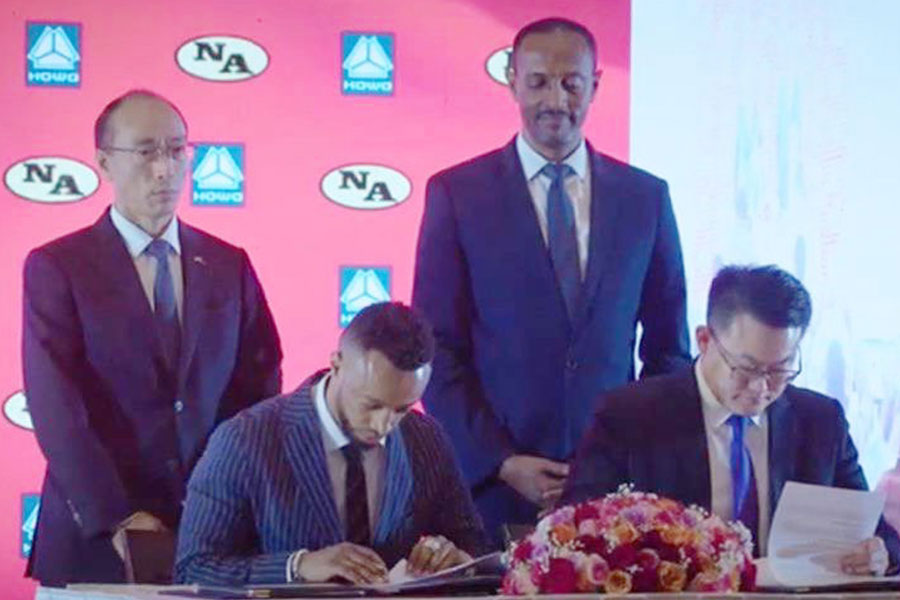
Nov 11 , 2023
By Hintsa Andebrhan
Ethiopia’s abstention in a United Nations (UN) vote on a ceasefire for humanitarian aid in Gaza has sparked surprise and drew attention, as it appears at odds with the expectations of a country led by a Nobel Peace laureate, Prime Minister Abiy Ahmed (PhD).
The abstention raises questions about whether Ethiopia seeks support from Israel on the global stage, primarily due to the internal crisis and geopolitical tensions with Egypt over the Grand Ethiopian Renaissance Dam (GERD). By abstaining, Ethiopia could be angling for diplomatic backing, albeit in a complex matrix where the interests of the United States and Egypt, both influential allies of Israel, are deeply interwoven.
In the language of diplomacy, abstention can often be a strategic move, indicating a desire to remain neutral or to avoid making a difficult decision on contentious issues. In the case of Gaza, Ethiopia’s position is less indicative of strategic diplomacy and more a signal of either indecision or overcautious politics. Prime Minister Abiy has been clear about his ambitions for Ethiopia to be a significant player in the geopolitics of the Red Sea arena. Yet, the recent abstention could suggest a miscalculation in Ethiopia’s diplomatic posture, potentially undermining its broader strategic objectives.
There should be a concern that Ethiopia’s understanding of Arab countries’ foreign policies about Israel and Palestine may be lacking, potentially jeopardising its efforts to navigate the geopolitics of the region. There is a call for Ethiopia to develop a more autonomous and informed foreign policy, one that is less influenced by Western powers and their now assertive adversaries and more attuned to the dynamics of Middle Eastern geopolitics.
As the global focus shifts between geopolitical hotspots, from the Russian-Ukrainian conflict to the Israeli-Palestinian tensions, US President Joe Biden has expressed confidence in managing both crises concurrently. This contrasts with the more cautious view of Treasury Secretary Janet Yellen, who has warned of the domestic economic strain of supporting military aid to both Ukraine and Israel. The shifting spotlight has seemingly placed Ukrainian President, Volodymyr Zelenskyy, in a position of expressing concern over his country’s plight being overshadowed by the Gaza conflict.
This situation underscores the competitive nature of international crises for global attention and resources.
The dichotomy in approaches to the Israeli-Palestinian conflict is also evident on the world stage. Western countries traditionally advocate for dialogue, while powers like Russia and China push for definitive resolutions, such as the establishment of an independent Palestinian state within the 1967 borders, with East Jerusalem as its capital.
In Africa, responses to the Israel-Palestine conflict are varied. Countries like South Africa and Algeria have voiced strong support for Palestine, revealing a divide across the continent. A few of the African countries have chosen silence or neutrality, while others displayed open solidarity with either Israel or Palestine.
Taking a side in the Israeli-Palestinian conflict is not a simple decision for any administration, particularly for one navigating without a clearly defined and articulated foreign policy. While political and diplomatic positions are crucial, at the heart of the matter is a moral and legal obligation to uphold human dignity and the imperative to support humanitarian causes.
For Ethiopia, a country often hailed as a symbol of early human civilisation and freedom, abstaining from the UN vote is more than a political manoeuvre — it touches on the core values of human solidarity and the country’s historical ethos. The decision to abstain, thus, is not merely a reflection of Ethiopia’s current diplomatic strategy but also its place and identity on the international stage.
PUBLISHED ON
Nov 11,2023 [ VOL
24 , NO
1228]


My Opinion | May 25,2024

My Opinion | Feb 10,2024

Viewpoints | Oct 21,2023

Radar | Oct 12,2024

Advertorials | Feb 12,2024

My Opinion | 131453 Views | Aug 14,2021

My Opinion | 127805 Views | Aug 21,2021

My Opinion | 125786 Views | Sep 10,2021

My Opinion | 123421 Views | Aug 07,2021

Dec 22 , 2024 . By TIZITA SHEWAFERAW
Charged with transforming colossal state-owned enterprises into modern and competitiv...

Aug 18 , 2024 . By AKSAH ITALO
Although predictable Yonas Zerihun's job in the ride-hailing service is not immune to...

Jul 28 , 2024 . By TIZITA SHEWAFERAW
Unhabitual, perhaps too many, Samuel Gebreyohannes, 38, used to occasionally enjoy a couple of beers at breakfast. However, he recently swit...

Jul 13 , 2024 . By AKSAH ITALO
Investors who rely on tractors, trucks, and field vehicles for commuting, transporting commodities, and f...

Jun 28 , 2025
Meseret Damtie, the assertive auditor general, has never been shy about naming names...

Jun 21 , 2025
A well-worn adage says, “Budget is not destiny, but it is direction.” Examining t...

Jun 14 , 2025
Yet again, the Horn of Africa is bracing for trouble. A region already frayed by wars...

Jun 7 , 2025
Few promises shine brighter in Addis Abeba than the pledge of a roof for every family...

Jun 29 , 2025
Addis Abeba's first rains have coincided with a sweeping rise in private school tuition, prompting the city's education...

Jun 29 , 2025 . By BEZAWIT HULUAGER
Central Bank Governor Mamo Mihretu claimed a bold reconfiguration of monetary policy...

Jun 29 , 2025 . By BEZAWIT HULUAGER
The federal government is betting on a sweeping overhaul of the driver licensing regi...

Jun 29 , 2025 . By NAHOM AYELE
Gadaa Bank has listed 1.2 million shares on the Ethiopian Securities Exchange (ESX),...